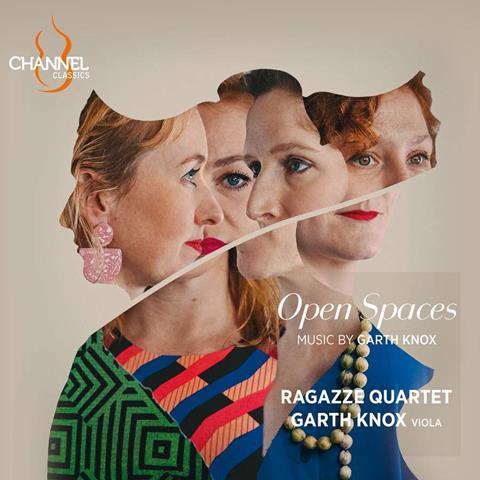Idiomatic works from a master violist turned composer

The Strad Issue: October 2023
Description: Idiomatic works from a master violist turned composer
Musicians: Ragazze Quartet, Garth Knox (viola)
Works: Knox: Satellites (String Quartet no.1); Four into Twenty (String Quartet no.2); Quartet for One; One Finger; Ten Fingers; Microtonal Blues; Rick O’Shea
Catalogue number: CHANNEL CLASSICS CCS44623
Garth Knox has been an eloquent advocate of contemporary music for most of his professional career as a violist, which has included stints with Pierre Boulez’s Ensemble Intercontemporain and the Arditti Quartet. For many years now he has also been busy as a composer, mostly but by no means exclusively for his own instrument. This recording brings together the two string quartets he has written to date – three if one includes Quartet for One for unaccompanied viola, prompted by Covid-enforced isolation. It also has a selection from Knox’s studies in extended techniques, involving glissando, pizzicato, microtones and ricochet (hence the punning Rick O’Shea, which in any case does feature echoes of Irish fiddling!).
Read: Violist Garth Knox receives honorary doctorate from RCS
Watch: Singing viola player performs Garth Knox
Read: Former Arditti Quartet violist Garth Knox to join RNCM faculty
Of course, these and other techniques also feature extensively in the string quartets themselves, as Knox explains in his detailed booklet notes. In common with his fellow violist–composer Brett Dean, Knox often finds inspiration outside music. Satellites, written for the Kronos Quartet, aims to describe movement in outer space, while Four into Twenty, commissioned by the present interpreters, reflects upon aspects of life in the 1920s, as we move through this century’s own twenties. The Dutch Ragazze Quartet is completely inside Knox’s tonally tinged, mercurial music, which – aided by a close, lifelike recording – is presented to the listener with ideal clarity and enormous panache. Knox himself completes the CD with a ruminative rendition of Quartet for One, at the opposite end of the expressive spectrum from its dedicatee Lawrence Power’s extrovert premiere performance, but equally searching in its timbral exploration.
CARLOS MARÍA SOLARE











































No comments yet